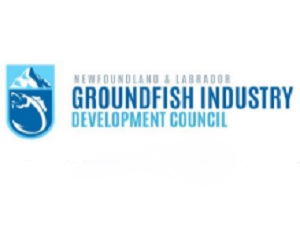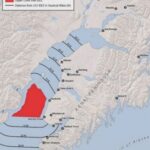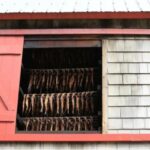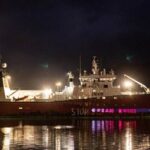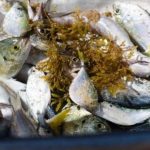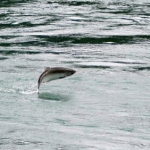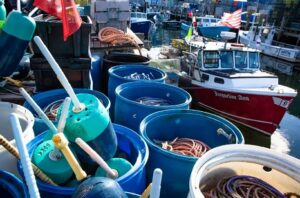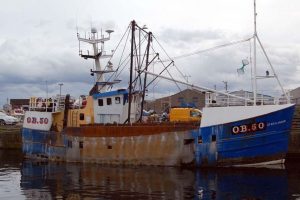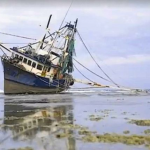Tag Archives: FFAW
Letter to Prime Minister Trudeau and Minister Lebouthillier Re: Northern Cod
 Dear Prime Minister Trudeau and Minister Lebouthillier, We write today on a serious matter needing your attention. On behalf of 320,000 workers across the country, including more than 14,000 members of the Fish, Food and Allied Workers (FFAW) Union in Newfoundland and Labrador, we are calling on you to reverse a recent decision with respect to the northern cod moratorium. The decision to end the moratorium and grant access to corporate offshore interests flies in the face of what was committed by your government and decades of past fisheries management practice. We also are concerned with the impact this will have on a fishery that is still recovering. Your government must uphold its 2015 commitment to allocate the first 115,000 tonnes of northern cod quota to inshore harvesters and Indigenous groups and immediately reinstate the Northern cod stewardship fishery under the same conditions as 2023. more, >>CLICK TO READ<< 07:53
Dear Prime Minister Trudeau and Minister Lebouthillier, We write today on a serious matter needing your attention. On behalf of 320,000 workers across the country, including more than 14,000 members of the Fish, Food and Allied Workers (FFAW) Union in Newfoundland and Labrador, we are calling on you to reverse a recent decision with respect to the northern cod moratorium. The decision to end the moratorium and grant access to corporate offshore interests flies in the face of what was committed by your government and decades of past fisheries management practice. We also are concerned with the impact this will have on a fishery that is still recovering. Your government must uphold its 2015 commitment to allocate the first 115,000 tonnes of northern cod quota to inshore harvesters and Indigenous groups and immediately reinstate the Northern cod stewardship fishery under the same conditions as 2023. more, >>CLICK TO READ<< 07:53
YEAH!!! Newfoundland fish harvesters crash news conference to demand reinstating of cod moratorium
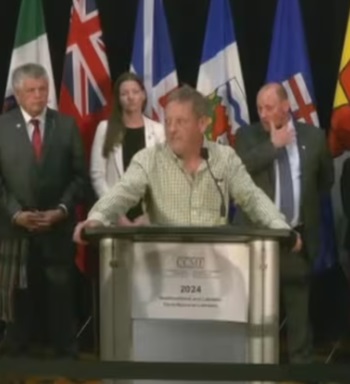 Fish harvesters in Newfoundland crashed the podium at a meeting of Canada’s environment ministers in St. John’s on Wednesday, demanding a meeting with Prime Minister Justin Trudeau over the federal government’s decision to reopen the commercial cod fishery in Newfoundland and Labrador. Moments before the start of the news conference, which was to detail two days of meetings of the Canadian Council of Environment Ministers, Newfoundland and Labrador Environment Minister Bernard Davis was interrupted by a loud siren. Glen Winslow, a St. John’s fish harvester, then walked up to meet Davis at the podium from a group of around 15 protesters. “Sorry we got to do this, my buddy, but this is too important to Newfoundland and Labrador,” Winslow said to Davis over the news conference’s microphone while the other ministers watched on. more, >>CLICK TO READ<< 17:43
Fish harvesters in Newfoundland crashed the podium at a meeting of Canada’s environment ministers in St. John’s on Wednesday, demanding a meeting with Prime Minister Justin Trudeau over the federal government’s decision to reopen the commercial cod fishery in Newfoundland and Labrador. Moments before the start of the news conference, which was to detail two days of meetings of the Canadian Council of Environment Ministers, Newfoundland and Labrador Environment Minister Bernard Davis was interrupted by a loud siren. Glen Winslow, a St. John’s fish harvester, then walked up to meet Davis at the podium from a group of around 15 protesters. “Sorry we got to do this, my buddy, but this is too important to Newfoundland and Labrador,” Winslow said to Davis over the news conference’s microphone while the other ministers watched on. more, >>CLICK TO READ<< 17:43
Furey says changes to cod catch are an ‘affront’ to N.L. in letter to federal fisheries minister
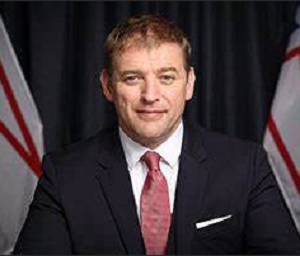 In a letter to Diane Lebouthillier, dated July 3, Furey says the provincial government is concerned about the changes, announced June 26. “Changes that provide increased access to foreign fleets, coupled with the risk of overfishing, are an affront to the patience and commitment to stewardship demonstrated by the hardworking harvesters and processors of this province,” says Furey in the letter, posted to X, formerly known as Twitter. “The province simply cannot support fish being harvested by foreign countries at the expense of our own harvesters.” Furey’s letter is the latest public rebuke by N.L.’s Liberal government — currently the only provincial Liberal administration in the country — of the federal Liberals. more, >>CLICK TO READ<< 14:51
In a letter to Diane Lebouthillier, dated July 3, Furey says the provincial government is concerned about the changes, announced June 26. “Changes that provide increased access to foreign fleets, coupled with the risk of overfishing, are an affront to the patience and commitment to stewardship demonstrated by the hardworking harvesters and processors of this province,” says Furey in the letter, posted to X, formerly known as Twitter. “The province simply cannot support fish being harvested by foreign countries at the expense of our own harvesters.” Furey’s letter is the latest public rebuke by N.L.’s Liberal government — currently the only provincial Liberal administration in the country — of the federal Liberals. more, >>CLICK TO READ<< 14:51
O’Regan Rejects FFAW’s Calls to Reverse Commercial Cod Fishery
 The union is demanding that Ottawa reverse its decision and maintain a stewardship fishery for cod, citing what they believe could be the detrimental impacts of foreign draggers now having access to the stock. O’Regan says once the stock goes from the critical to the cautious zone, and enough fishing has happened that it is essentially a commercial fishery, there are certain obligations that kick in. He says the cod quota can’t be increased to the point where it crosses certain lines and then say ‘nothing to see here.’ O’Regan says that the NAFO agreements are binding, and if people want an increase to the quota there are obligations they have to keep. more, >>CLICK TO READ<< 08:24
The union is demanding that Ottawa reverse its decision and maintain a stewardship fishery for cod, citing what they believe could be the detrimental impacts of foreign draggers now having access to the stock. O’Regan says once the stock goes from the critical to the cautious zone, and enough fishing has happened that it is essentially a commercial fishery, there are certain obligations that kick in. He says the cod quota can’t be increased to the point where it crosses certain lines and then say ‘nothing to see here.’ O’Regan says that the NAFO agreements are binding, and if people want an increase to the quota there are obligations they have to keep. more, >>CLICK TO READ<< 08:24
Spectre of draggers returning to cod fishery drives FFAW to call to reinstate moratorium
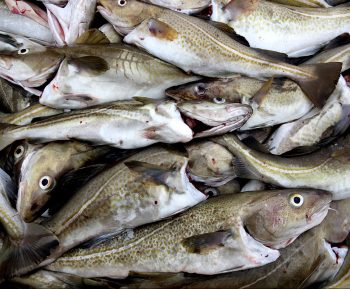 Newfoundland and Labrador’s fisheries union is calling on the federal government to revert its decision to end the moratorium on cod fishing and reinstate a stewardship fishery, a week after the federal Liberal government called the move “a historic milestone.” Greg Pretty, president of the Fish, Food and Allied Workers union (FFAW), told reporters in a press conference on Tuesday — the 32nd anniversary of the 1992 cod moratorium — there’s real concern that everything done over the last 32 years to rebuild the stock will be undone if offshore draggers, both Canadian and international, are allowed to fish cod in Newfoundland and Labrador waters again. more, >>CLICK TO READ<< 07:38
Newfoundland and Labrador’s fisheries union is calling on the federal government to revert its decision to end the moratorium on cod fishing and reinstate a stewardship fishery, a week after the federal Liberal government called the move “a historic milestone.” Greg Pretty, president of the Fish, Food and Allied Workers union (FFAW), told reporters in a press conference on Tuesday — the 32nd anniversary of the 1992 cod moratorium — there’s real concern that everything done over the last 32 years to rebuild the stock will be undone if offshore draggers, both Canadian and international, are allowed to fish cod in Newfoundland and Labrador waters again. more, >>CLICK TO READ<< 07:38
Increase to northern cod allocation ‘slap in the face’ to harvesters, FFAW president says
 “It’s absolutely ridiculous. It’s probably the worst decision I’ve ever seen out of Ottawa, and I’ve seen some beauts,” said Pretty, who leads the Fish, Food and Allied Workers union. Federal Fisheries Minister Diane Lebouthillier on Wednesday announced an increase to the amount of total allowable catch (TAC) for northern cod in a fishing zone labelled Zone 2J3KL, which stretches from the southeast corner of Newfoundland to the Labrador coastline. Pretty said his largest concern is the fishery being switched from a designation of a stewardship fishery, which helped protect the stock, to a commercial fishery. He argues it brings private operators and harvesters from other countries back to the table too soon and involves parties that caused the moratorium in the first place. more, >>CLICK TO READ<< 08:06
“It’s absolutely ridiculous. It’s probably the worst decision I’ve ever seen out of Ottawa, and I’ve seen some beauts,” said Pretty, who leads the Fish, Food and Allied Workers union. Federal Fisheries Minister Diane Lebouthillier on Wednesday announced an increase to the amount of total allowable catch (TAC) for northern cod in a fishing zone labelled Zone 2J3KL, which stretches from the southeast corner of Newfoundland to the Labrador coastline. Pretty said his largest concern is the fishery being switched from a designation of a stewardship fishery, which helped protect the stock, to a commercial fishery. He argues it brings private operators and harvesters from other countries back to the table too soon and involves parties that caused the moratorium in the first place. more, >>CLICK TO READ<< 08:06
FFAW President Greg Pretty not seeking re-election, will retire
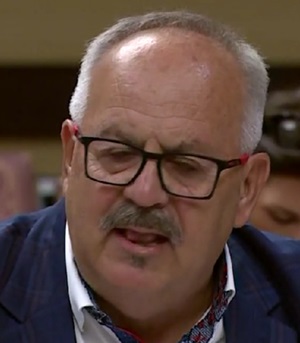 Fish, Food and Allied Workers (FFAW) union president Greg Pretty is retiring after more than 40 years with Newfoundland and Labrador’s largest private sector union. Pretty presided over the fisheries’ union during a tumultuous term that included two contentious tie-ups in back-to-back snow crab seasons. When asked on Friday if he would do anything differently, Pretty said no. “We had to have tie-ups to move this agenda. It was contrary to regulations and legislation, but it had to be done and it paid off,” he said. “We’re in a much better situation right now in 12 short months. So no, I don’t have any regrets.” Video, more, >>CLICK TO READ<< 11:38
Fish, Food and Allied Workers (FFAW) union president Greg Pretty is retiring after more than 40 years with Newfoundland and Labrador’s largest private sector union. Pretty presided over the fisheries’ union during a tumultuous term that included two contentious tie-ups in back-to-back snow crab seasons. When asked on Friday if he would do anything differently, Pretty said no. “We had to have tie-ups to move this agenda. It was contrary to regulations and legislation, but it had to be done and it paid off,” he said. “We’re in a much better situation right now in 12 short months. So no, I don’t have any regrets.” Video, more, >>CLICK TO READ<< 11:38
With crab season underway, potential job action looms for fish plant workers without a contract
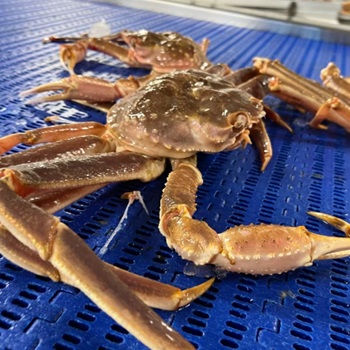 Crab is coming into processing plants in eastern Newfoundland, but the lack of a contract for unionized workers could throw a wrench in the season. Joey Warford, the industrial-retail-offshore council member representative for the Fish, Food & Allied Workers union, said plant workers have been without a deal since December. “We’re hoping to get a deal done but, you know, that remains to be seen. The members are speaking loud and clear on their needs and their wants,” Warford — who said he represents about 1,000 plant workers in without a deal in Witless Bay, Bonavista, Triton and New Wes Valley, more, >CLICK TO READ<< 19:25
Crab is coming into processing plants in eastern Newfoundland, but the lack of a contract for unionized workers could throw a wrench in the season. Joey Warford, the industrial-retail-offshore council member representative for the Fish, Food & Allied Workers union, said plant workers have been without a deal since December. “We’re hoping to get a deal done but, you know, that remains to be seen. The members are speaking loud and clear on their needs and their wants,” Warford — who said he represents about 1,000 plant workers in without a deal in Witless Bay, Bonavista, Triton and New Wes Valley, more, >CLICK TO READ<< 19:25
Cod stock reassessment prompts calls from producers to end moratorium
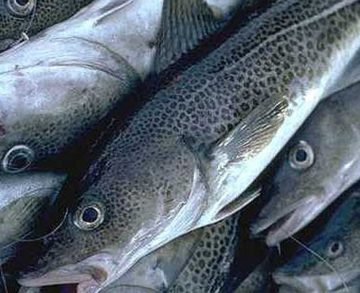 A recent reassessment of Newfoundland and Labrador’s northern cod stock has some in the industry calling an end to the commercial moratorium implemented in 1992. Alberto Wareham, president and CEO of Icewater Seafoods in Arnold’s Cove, says last year’s reassessment — the Department of Fisheries and Oceans, in reviewing historical data, moved cod from the “critical” zone to the “cautious” zone — could signal the potential for a limited commercial harvest. “We’re hoping now with more confidence in the stock we would see a reopening of a commercial cod fishery,” he said. more, >>CLICK TO READ<< 10:48
A recent reassessment of Newfoundland and Labrador’s northern cod stock has some in the industry calling an end to the commercial moratorium implemented in 1992. Alberto Wareham, president and CEO of Icewater Seafoods in Arnold’s Cove, says last year’s reassessment — the Department of Fisheries and Oceans, in reviewing historical data, moved cod from the “critical” zone to the “cautious” zone — could signal the potential for a limited commercial harvest. “We’re hoping now with more confidence in the stock we would see a reopening of a commercial cod fishery,” he said. more, >>CLICK TO READ<< 10:48
Canada opens personal-use mackerel bait fishery, extends commercial moratorium
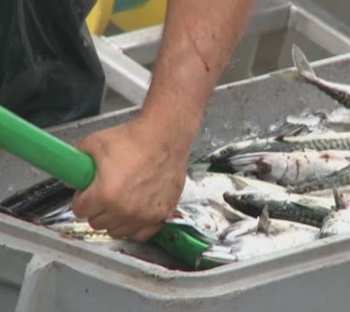 Canada is opening a personal-use bait fishery for mackerel this spring while extending the moratorium on commercial mackerel fishing in Atlantic Canada and Quebec in 2024. Fish caught under a bait licence are intended for personal-use and cannot be sold, traded or bartered. The Department of Fisheries and Oceans said in a news release Thursday the bait fishery will help licence holders supply their other fisheries, such lobster, with bait without jeopardizing the ongoing rebuilding of the stock. The 470-tonne bait quota will be released in two parts to allow fishermen in different parts of the region equitable access. Mackerel arrive in different parts of the region at different times — first off southern Nova Scotia and later in Newfoundland and Labrador. more, >>CLICK TO READ<< 14:42
Canada is opening a personal-use bait fishery for mackerel this spring while extending the moratorium on commercial mackerel fishing in Atlantic Canada and Quebec in 2024. Fish caught under a bait licence are intended for personal-use and cannot be sold, traded or bartered. The Department of Fisheries and Oceans said in a news release Thursday the bait fishery will help licence holders supply their other fisheries, such lobster, with bait without jeopardizing the ongoing rebuilding of the stock. The 470-tonne bait quota will be released in two parts to allow fishermen in different parts of the region equitable access. Mackerel arrive in different parts of the region at different times — first off southern Nova Scotia and later in Newfoundland and Labrador. more, >>CLICK TO READ<< 14:42
NL Harvesters Say Thanks For Nothing, Bait Fishery Slap in the Face to License Holders
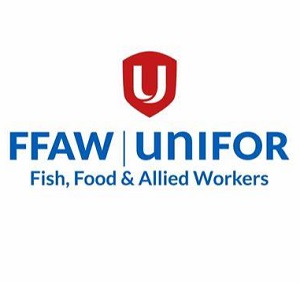 This morning, the federal government announced a bait fishery for Atlantic mackerel in Atlantic Canada and Quebec. A bait fishery for mackerel will do nothing for harvesters in Newfoundland and Labrador, and harvesters are demanding a modest directed commercial quota for the province. “Newfoundland and Labrador has a history of a fully monitored directed fishery that provided top quality product in a traditionally fall fishery. FFAW-Unifor’s proposal for a directed fishery with temporal coverage would bridge the existing information gaps,” says FFAW-Unifor Secretary-Treasurer Jason Spingle. “Moreover, today’s release is not clear what portion Newfoundland and Labrador harvesters would receive and when,” Spingle says. more, >>CLICK TO READ<< 13:36
This morning, the federal government announced a bait fishery for Atlantic mackerel in Atlantic Canada and Quebec. A bait fishery for mackerel will do nothing for harvesters in Newfoundland and Labrador, and harvesters are demanding a modest directed commercial quota for the province. “Newfoundland and Labrador has a history of a fully monitored directed fishery that provided top quality product in a traditionally fall fishery. FFAW-Unifor’s proposal for a directed fishery with temporal coverage would bridge the existing information gaps,” says FFAW-Unifor Secretary-Treasurer Jason Spingle. “Moreover, today’s release is not clear what portion Newfoundland and Labrador harvesters would receive and when,” Spingle says. more, >>CLICK TO READ<< 13:36
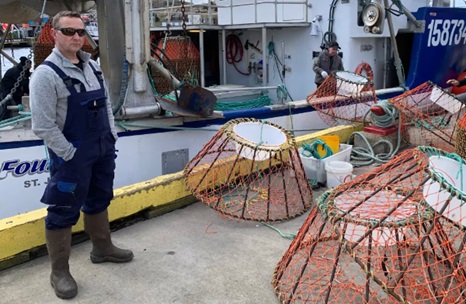
FFAW applauds new deal on crab pricing, but says system still needs fixing
Harvesters refused to fish for more than a week, until the FFAW and Association of Seafood Producers reached a deal on Sunday that included increases to minimum prices and a settlement at the end of the season. That deal will override the panel’s decision. The deal struck Sunday includes a floor price of $3 per pound for the entire 2024 season. Both sides will be able to file for a reconsideration if the market price goes above $6.50 US. Harvester Glen Winslow was getting ready to finally start his season Monday morning in St. John’s. He said it’ll likely be a few days before boats head for the crab grounds. “I’m quite satisfied with where we got, to be honest with you,” Winslow told Radio-Canada. Photos, more, >>click to read<< 06:11
BREAKING: FFAW AND ASP REACH AGREEMENT TO GET SNOW CRAB FISHERY STARTED
 This evening, the Association of Seafood Producers (ASP) reached an agreement with the FFAW Snow Crab Bargaining Committee, ensuring the start of the 2024 snow crab fishery. As a result, plans for a demonstration tomorrow are now cancelled. “This is an historic pricing agreement for harvesters in our province, restoring fairness in the crab fishery and giving harvesters a sharing arrangement they have not seen in a long time. We’re very pleased about the progress made here today and thank Premier Furey for ensuring the fishery gets off the ground as quickly as possible for the benefit of all those involved,” says FFAW-Unifor President Greg Pretty. “I also want to extend my sincere thanks to all members of our Bargaining Committee, who stood strong throughout this process and ensured that harvesters in our province would not be shortchanged their fair share,” he says. more, >>click to read<< 18:09
This evening, the Association of Seafood Producers (ASP) reached an agreement with the FFAW Snow Crab Bargaining Committee, ensuring the start of the 2024 snow crab fishery. As a result, plans for a demonstration tomorrow are now cancelled. “This is an historic pricing agreement for harvesters in our province, restoring fairness in the crab fishery and giving harvesters a sharing arrangement they have not seen in a long time. We’re very pleased about the progress made here today and thank Premier Furey for ensuring the fishery gets off the ground as quickly as possible for the benefit of all those involved,” says FFAW-Unifor President Greg Pretty. “I also want to extend my sincere thanks to all members of our Bargaining Committee, who stood strong throughout this process and ensured that harvesters in our province would not be shortchanged their fair share,” he says. more, >>click to read<< 18:09
Crab harvesters heading back to Confederation Building on Monday morning, Efford says
 John Efford, the unofficial leader of a fisheries union protest that has gripped Newfoundland and Labrador’s seafood industry, says crab harvesters will be back to protesting on Monday morning. In a Facebook post on Thursday evening, Efford called on harvesters to meet outside Confederation Building at 7 a.m. NT on Monday to protest for a better deal to start the lucrative snow crab season, along with other demands. Efford called on harvesters from all over the province to head to St. John’s to begin protests. The main crux of the protest relates to the ongoing dispute over the crab season. The FFAW and the Association of Seafood Producers (ASP) have exchanged barbs in recent days, accusing each other of spreading misinformation. more, >>click to read<< 12:35
John Efford, the unofficial leader of a fisheries union protest that has gripped Newfoundland and Labrador’s seafood industry, says crab harvesters will be back to protesting on Monday morning. In a Facebook post on Thursday evening, Efford called on harvesters to meet outside Confederation Building at 7 a.m. NT on Monday to protest for a better deal to start the lucrative snow crab season, along with other demands. Efford called on harvesters from all over the province to head to St. John’s to begin protests. The main crux of the protest relates to the ongoing dispute over the crab season. The FFAW and the Association of Seafood Producers (ASP) have exchanged barbs in recent days, accusing each other of spreading misinformation. more, >>click to read<< 12:35
ASP attempts to post price to break ranks, Commitee turns down offer that further erodes harvester share
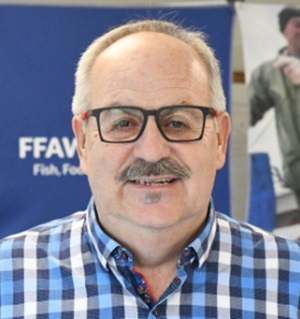 Companies continue to spread misinformation in an effort to cause controversy and mistrust between fellow harvesters. “Today, ASP relayed a verbal offer via our Mediator and before our Committee was event able to convene, plants began to advise harvesters that a price had been set for them to go fishing. This is the equivalent of posting a price without a collective agreement. And it’s completely, unequivocally, unacceptable,” says FFAW-Unifor President Greg Pretty. “Harvesters are advised not to fish until an agreement is signed, and the only source that will come from is the Union’s official channels,” Pretty says. more, >>click to read<< 06:43
Companies continue to spread misinformation in an effort to cause controversy and mistrust between fellow harvesters. “Today, ASP relayed a verbal offer via our Mediator and before our Committee was event able to convene, plants began to advise harvesters that a price had been set for them to go fishing. This is the equivalent of posting a price without a collective agreement. And it’s completely, unequivocally, unacceptable,” says FFAW-Unifor President Greg Pretty. “Harvesters are advised not to fish until an agreement is signed, and the only source that will come from is the Union’s official channels,” Pretty says. more, >>click to read<< 06:43
Accusing union of refusing all offers, ASP warns crab tie-up will soon have an economic whammy
 Association of Seafood Producers executive director Jeff Loder says the current crab tie-up is getting to a point where it is going to negatively affect the market for the rest of the season — and other fisheries after that. It’s been nearly a week since the snow crab season was scheduled to begin. Fish harvesters have tied up their boats, however, refusing to fish under the pricing formula that an independent panel set just before the start of the season. Loder said it’s lining up to be a repeat of last season, in which harvesters tied up their boats for six weeks. “We are now reaching the point where [we] were to last year where there will be negative implications if the crab fishery does not start,” he told reporters Thursday. Video, more, >>click to read<< 17:43
Association of Seafood Producers executive director Jeff Loder says the current crab tie-up is getting to a point where it is going to negatively affect the market for the rest of the season — and other fisheries after that. It’s been nearly a week since the snow crab season was scheduled to begin. Fish harvesters have tied up their boats, however, refusing to fish under the pricing formula that an independent panel set just before the start of the season. Loder said it’s lining up to be a repeat of last season, in which harvesters tied up their boats for six weeks. “We are now reaching the point where [we] were to last year where there will be negative implications if the crab fishery does not start,” he told reporters Thursday. Video, more, >>click to read<< 17:43
Crab harvesters’ union calls for price formula set out in past provincial report
 With their boats tied up and crab pots still on dry land, fish harvesters and union officials are calling on the Newfoundland and Labrador government to revisit a 2023 report that sets out what they say is a fair way forward for the snow crab fishery. At a news conference in St. John’s on Wednesday, Fish, Food & Allied Workers union president Greg Pretty pointed to a report last year from the province’s fish price-setting strategic review team, chaired by Glenn Blackwood. Pretty says the pricing formula set out in that report, which followed a six-week tie-up last season, would give harvesters a fair market share. Glen Winslow, a St. John’s harvester who was part of the bargaining committee, says the formula set out in Blackwood’s report would have allowed for a larger share for harvesters if the markets had performed better. “The Blackwood formula would have fixed all our problems, but it was thrown out at the last minute.” Video, more, >>click to read<< 18:24
With their boats tied up and crab pots still on dry land, fish harvesters and union officials are calling on the Newfoundland and Labrador government to revisit a 2023 report that sets out what they say is a fair way forward for the snow crab fishery. At a news conference in St. John’s on Wednesday, Fish, Food & Allied Workers union president Greg Pretty pointed to a report last year from the province’s fish price-setting strategic review team, chaired by Glenn Blackwood. Pretty says the pricing formula set out in that report, which followed a six-week tie-up last season, would give harvesters a fair market share. Glen Winslow, a St. John’s harvester who was part of the bargaining committee, says the formula set out in Blackwood’s report would have allowed for a larger share for harvesters if the markets had performed better. “The Blackwood formula would have fixed all our problems, but it was thrown out at the last minute.” Video, more, >>click to read<< 18:24
Newfoundland and Labrador: Crab Harvesters Demand Fair Share
 The crab fishing season officially started on Saturday, April 6th, yet all harvesters in Newfoundland and Labrador stayed tied up demanding their fair share. The Blackwood Report, commissioned by the province, demonstrated a fair-sharing arrangement for fish harvesters in Newfoundland and Labrador. Harvesters refuse to fish for any formula that undersells their slice of the pie. What are harvesters demanding: more, >>click to read<< 09:24
The crab fishing season officially started on Saturday, April 6th, yet all harvesters in Newfoundland and Labrador stayed tied up demanding their fair share. The Blackwood Report, commissioned by the province, demonstrated a fair-sharing arrangement for fish harvesters in Newfoundland and Labrador. Harvesters refuse to fish for any formula that undersells their slice of the pie. What are harvesters demanding: more, >>click to read<< 09:24
Crab harvesters refusing to fish under current pricing formula, union wants right to strike
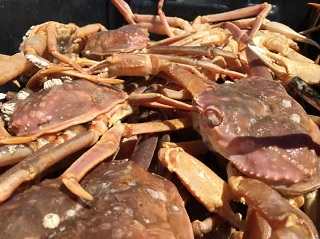 In a news release Tuesday night, the Fish, Food & Allied Workers said its members cannot fish under the price formula chosen by the province’s price-setting panel. That formula was put forward by the Association for Seafood Producers and sets a floor price of $2.60 per pound. The union held a meeting on Tuesday afternoon with more than 40 crab committee chairs from across the province, and said the message was clear. “Crab harvesters fully understand the importance of their business to their families and their communities. This injustice must be corrected, and we expect that harvesters will support leadership’s position to not fish,” FFAW president Greg Pretty said in the release. more, >>click to read<< 10:04
In a news release Tuesday night, the Fish, Food & Allied Workers said its members cannot fish under the price formula chosen by the province’s price-setting panel. That formula was put forward by the Association for Seafood Producers and sets a floor price of $2.60 per pound. The union held a meeting on Tuesday afternoon with more than 40 crab committee chairs from across the province, and said the message was clear. “Crab harvesters fully understand the importance of their business to their families and their communities. This injustice must be corrected, and we expect that harvesters will support leadership’s position to not fish,” FFAW president Greg Pretty said in the release. more, >>click to read<< 10:04
Crab harvesters will lose out on $30M because price-setting panel sided with processors, says Efford
 With the time-sensitive snow crab season set to begin in a few days, fish harvesters in Newfoundland and Labrador are once again talking about tying up their boats due to the price of crab. One vocal critic says the new decision will cost harvesters as much as $30 million from a lucrative fishery that has become the economic mainstay in the industry since the cod collapse of the early 1990s. The province’s price-setting panel sided with the Association of Seafood Producers on Monday evening, setting a price floor of $2.60 per pound with the ability go up as market factors change. John Efford, the Port de Grave fisherman who led protests throughout March, said when he heard the price setting panel had chosen the ASP formula his first reaction was one of disbelief. Photos, Video, more, >>click to read<< 16:35
With the time-sensitive snow crab season set to begin in a few days, fish harvesters in Newfoundland and Labrador are once again talking about tying up their boats due to the price of crab. One vocal critic says the new decision will cost harvesters as much as $30 million from a lucrative fishery that has become the economic mainstay in the industry since the cod collapse of the early 1990s. The province’s price-setting panel sided with the Association of Seafood Producers on Monday evening, setting a price floor of $2.60 per pound with the ability go up as market factors change. John Efford, the Port de Grave fisherman who led protests throughout March, said when he heard the price setting panel had chosen the ASP formula his first reaction was one of disbelief. Photos, Video, more, >>click to read<< 16:35
FFAW blasts price-setting panel after it sides with ASP on crab-pricing formula
 With the time-sensitive snow crab season set to begin in a few days, fish harvesters in Newfoundland and Labrador are once again talking about tying up their boats due to the price of crab. The province’s price-setting panel sided with the Association of Seafood Producers on Monday evening, setting a price floor of $2.60 per pound with the ability go up as market factors change. The panel rejected a formula proposed by the Food, Fish & Allied Workers union, which was closely tied to the formula suggested by an independent report at the end of last season. “There was a better way to do this,” said FFAW president Greg Pretty. “The work was already done by Glen Blackwood in his report. The Blackwood formula provided a way for harvesters to be paid a fair market share, but that was tossed aside for a formula that is not tied to information harvesters can trust.” more, >>click to read<< 11:26
With the time-sensitive snow crab season set to begin in a few days, fish harvesters in Newfoundland and Labrador are once again talking about tying up their boats due to the price of crab. The province’s price-setting panel sided with the Association of Seafood Producers on Monday evening, setting a price floor of $2.60 per pound with the ability go up as market factors change. The panel rejected a formula proposed by the Food, Fish & Allied Workers union, which was closely tied to the formula suggested by an independent report at the end of last season. “There was a better way to do this,” said FFAW president Greg Pretty. “The work was already done by Glen Blackwood in his report. The Blackwood formula provided a way for harvesters to be paid a fair market share, but that was tossed aside for a formula that is not tied to information harvesters can trust.” more, >>click to read<< 11:26
Union and Province Come to Agreement on ‘Free Enterprise’
 Today, the Provincial Government has released a letter detailing the provincial changes taking place to increase provincial processing capacity and give harvesters more opportunities to sell their catch. The agreement, which stemmed from protests held last month in St. John’s and around the province, responds to harvesters’ demands for free enterprise. “We are pleased with the amount of collaboration and consultation that has taken place to produce the letter from Minister Loveless today. The Minister took the concerns of harvesters seriously and has made tangible changes that will have positive impacts for fish harvesters all over the province,” says FFAW-Unifor President Greg Pretty. “Importantly, I want our plant worker members to know you are not forgotten about, and these changes are expected to have minimal-to-no impact on existing jobs,” Pretty says. more, >>click to read<< 16:19
Today, the Provincial Government has released a letter detailing the provincial changes taking place to increase provincial processing capacity and give harvesters more opportunities to sell their catch. The agreement, which stemmed from protests held last month in St. John’s and around the province, responds to harvesters’ demands for free enterprise. “We are pleased with the amount of collaboration and consultation that has taken place to produce the letter from Minister Loveless today. The Minister took the concerns of harvesters seriously and has made tangible changes that will have positive impacts for fish harvesters all over the province,” says FFAW-Unifor President Greg Pretty. “Importantly, I want our plant worker members to know you are not forgotten about, and these changes are expected to have minimal-to-no impact on existing jobs,” Pretty says. more, >>click to read<< 16:19
DFO delays opening of crab season by a week, staving off more fish harvester protests
 The federal government has agreed to push back the opening of the snow crab season, following a request from the fisheries union and a threat of more protests. The Department of Fisheries and Oceans made the announcement Monday evening, a day after the Fish, Food & Allied Workers union wrote to the department and asked for a one-week delay. Fish harvesters wanted time to iron out the details of an agreement last week with the provincial government to implement sweeping changes to the industry that would affect the upcoming season. DFO initially denied that request, releasing its management plan Monday morning with an expected start date of April 1, prompting influential fisherman John Efford to threaten to rally protesters outside the DFO office in St. John’s. more, >>click to read<< 17:31
The federal government has agreed to push back the opening of the snow crab season, following a request from the fisheries union and a threat of more protests. The Department of Fisheries and Oceans made the announcement Monday evening, a day after the Fish, Food & Allied Workers union wrote to the department and asked for a one-week delay. Fish harvesters wanted time to iron out the details of an agreement last week with the provincial government to implement sweeping changes to the industry that would affect the upcoming season. DFO initially denied that request, releasing its management plan Monday morning with an expected start date of April 1, prompting influential fisherman John Efford to threaten to rally protesters outside the DFO office in St. John’s. more, >>click to read<< 17:31
You’re Young and Want to Make It Fishing? Good Luck
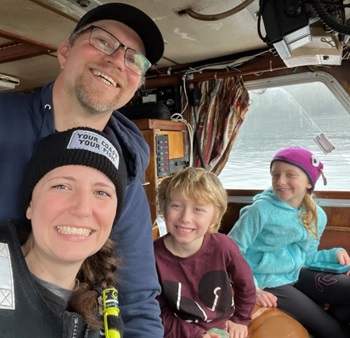 Duncan Cameron is a fisherman, like his dad and his dad’s dad before him. They count themselves among the scores of families who have made their livings on the water, pulling riches from the deep. But today, Cameron says young fishers like him are being priced out. Cameron is part of a group of fishers, conservationists and politicians who say independent owner-operators like himself are increasingly competing with big money to get a finite number of government licenses and quota they need to fish. Today, some of those licenses are worth hundreds of thousands or even more than a million dollars, something Cameron said has allowed major corporations to control a growing stake in a public resource. photos, more, >>click to read<< 07:27
Duncan Cameron is a fisherman, like his dad and his dad’s dad before him. They count themselves among the scores of families who have made their livings on the water, pulling riches from the deep. But today, Cameron says young fishers like him are being priced out. Cameron is part of a group of fishers, conservationists and politicians who say independent owner-operators like himself are increasingly competing with big money to get a finite number of government licenses and quota they need to fish. Today, some of those licenses are worth hundreds of thousands or even more than a million dollars, something Cameron said has allowed major corporations to control a growing stake in a public resource. photos, more, >>click to read<< 07:27
Fisheries protests give rise to a new John Efford — but what’s next for the unofficial leader?
 Until this month, the general public would have associated Efford’s name with his late father — the former fisheries minister who was a firebrand in his own right. But here was the younger Efford, a fisherman from Port de Grave, standing in the back of a pickup truck with a group of followers gathered in front of him. He had led them through two days of intense protests outside the house of government, and now he was the one holding the megaphone — not Fish, Food and Allied Workers union president Greg Pretty, nor FFAW treasury-secretary Jason Spingle. “Thank Jesus we’ve finally got some leadership!” a fisherman yelled from the crowd. “Isn’t it about time?” Efford quipped, garnering cheers. photos, video, more, >>click to read<< 06:16
Until this month, the general public would have associated Efford’s name with his late father — the former fisheries minister who was a firebrand in his own right. But here was the younger Efford, a fisherman from Port de Grave, standing in the back of a pickup truck with a group of followers gathered in front of him. He had led them through two days of intense protests outside the house of government, and now he was the one holding the megaphone — not Fish, Food and Allied Workers union president Greg Pretty, nor FFAW treasury-secretary Jason Spingle. “Thank Jesus we’ve finally got some leadership!” a fisherman yelled from the crowd. “Isn’t it about time?” Efford quipped, garnering cheers. photos, video, more, >>click to read<< 06:16

“We got ‘er done” – Fish harvesters reach deal with N.L. government to allow catch to be sold to outside buyers
John Efford Jr. fought back tears as he announced the news to hundreds of fish harvesters standing before him — they’d struck a deal with the Newfoundland and Labrador government to end days of protests. According to Efford — the de facto protest leader — and members of the fisheries union, the provincial government has agreed to let fish harvesters sell their catch to buyers from outside the province, regardless of species. They also said they have commitments on moving caps on processing to promote competition within the industry. “We got ‘er done,” Efford told reporters afterward. “Free enterprise for every species.” more, >>click o read<< 13:22
N.L. protest cause rooted in price-setting systems for fishers and processors
 The protest that erupted Wednesday outside the legislature in Newfoundland and Labrador has its roots in a complex, years-long struggle between independent fish harvesters and processors over the price-setting system, industry observers say. Sean Cadigan, a professor of history at Memorial University, said in an interview Thursday that one underlying factor in the tensions is the plunge in prices for snow crab, the province’s most valuable seafood export. From highs of over seven dollars per pound during the pandemic, the price fell to about two dollars per pound last year, creating hardships for harvesters at a time harvesters’ expenses are rising. He said that has combined with long-standing suspicions that harvesters have toward the small group of companies that dominate fish processing in the province. more, >>click to read<< 07:40
The protest that erupted Wednesday outside the legislature in Newfoundland and Labrador has its roots in a complex, years-long struggle between independent fish harvesters and processors over the price-setting system, industry observers say. Sean Cadigan, a professor of history at Memorial University, said in an interview Thursday that one underlying factor in the tensions is the plunge in prices for snow crab, the province’s most valuable seafood export. From highs of over seven dollars per pound during the pandemic, the price fell to about two dollars per pound last year, creating hardships for harvesters at a time harvesters’ expenses are rising. He said that has combined with long-standing suspicions that harvesters have toward the small group of companies that dominate fish processing in the province. more, >>click to read<< 07:40
Snow crab price talks have broken off, FFAW says
 Protest leader John Efford Jr. grabbed a megaphone Thursday to told the crowd that negotiations for a new crab price-setting formula had broken off ahead of the upcoming season. “There’s no agreement to be made,” he told the cheering crowd. “And how can you make an agreement when you’re trying to make an agreement with a colluded cartel that has the support of the government?” While the price-setting process has been controversial in the past, it hasn’t been at the core of the protests outside the province’s legislature this week. The Fish, Food & Allied Workers union and the Association of Seafood Processors have been working with the provincial government to establish a new formula to determine the price. more, >>click to read<< 17:12
Protest leader John Efford Jr. grabbed a megaphone Thursday to told the crowd that negotiations for a new crab price-setting formula had broken off ahead of the upcoming season. “There’s no agreement to be made,” he told the cheering crowd. “And how can you make an agreement when you’re trying to make an agreement with a colluded cartel that has the support of the government?” While the price-setting process has been controversial in the past, it hasn’t been at the core of the protests outside the province’s legislature this week. The Fish, Food & Allied Workers union and the Association of Seafood Processors have been working with the provincial government to establish a new formula to determine the price. more, >>click to read<< 17:12






